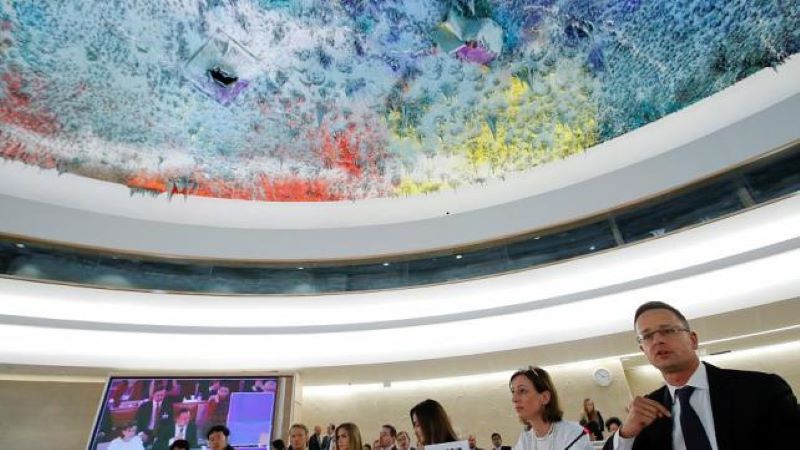UNITED NATIONS, Nov 30 (APP): More than 60 million women and girls worldwide who are forcibly displaced or stateless face high risks of gender-based violence (GBV), but funding for lifesaving services to support them is woefully lacking, the UN refugee agency , UNHCR, said Friday.
UN data reveals that reports of conflict-related sexual violence increased shockingly by 50 per cent last year compared to 2023, and women and girls accounted for 95 per cent of verified cases.
These numbers, however, “represent a small fraction of the reality” as many cases go unreported, the agency warned.
“In many remote locations, humanitarian access is cut off or resources and assistance are scarce. Access to justice also remains limited, and survivors fear retaliation and social marginalization,” UNHCR spokesperson Shabia Mantoo told journalists in Geneva.
She said colleagues working in conflict situations continue to hear from survivors who have faced brutal violence, torture, sexual exploitation, sexual violence and other horrors, including as a weapon of war.
In the Democratic Republic of the Congo (DRC), for example, women’s and girls’ bodies have become an extension of the “battle ground” amid cyclical violence and worsening insecurity, including in displacement sites. Furthermore, reports of gender-based violence increased this year, with rape constituting most violations, it was pointed out.
“In Chad, women have reported being raped while fleeing the conflict in Sudan,” Ms. Mantoo said.
“In Afghanistan, increasing restrictions on women and girls, high rates of domestic violence at home, and the overall worsening economic situation are contributing to a mental health crisis, with UNHCR partners reporting an increase in the number of patients seeking help.”
Women refugees and migrants moving on routes towards the Mediterranean continue to report that they face sexual violence and exploitation, enslavement and human trafficking. Humanitarians estimate that 90 per cent are raped.
Meanwhile, survivors of sexual violence who have fled to neighbouring countries often remain in precarious situations, owing to the additional risks of gender-based violence they may face during their displacement and delays in accessing services which may be limited.
“In addition to conflict-related sexual violence, forcibly displaced women and girls also face high risks of intimate partner violence. In certain displacement settings, the risks for them were estimated to be 20 per cent higher than for non-displaced women and girls,” said Ms Mantoo.
Furthermore, intersecting forms of discrimination also add to risks, including for women and girls with disabilities, those living in poverty, or who have diverse sexual orientations, gender identities, gender expressions and sex characteristics, she added.
Ms Mantoo said early and effective GBV prevention and response measures for women and girls affected by forced displacement and conflict are lifesaving and life-changing, but funding falls far short of needs.
“For instance, for six major regional refugee response plans – covering humanitarian needs for refugees from the DRC, Afghanistan, Sudan, Ukraine, South Sudan and Syria – gender-based violence programming for the entire year for all participating organizations amounting to $236 million are currently only 28 per cent funded,” she said.
UNHCR is highlighting the issue during the 16 Days of Activism against Gender-Based Violence, an annual global campaign that runs from 25 November to 10 December.
The agency fears that without adequate funding, millions of forcibly displaced women and girls may not be able to access critical services next year.





